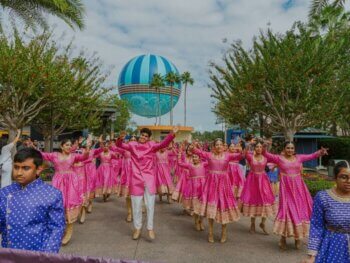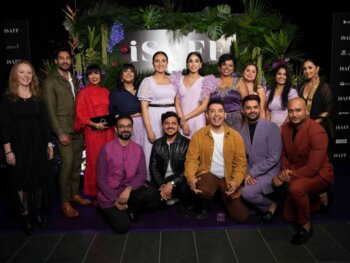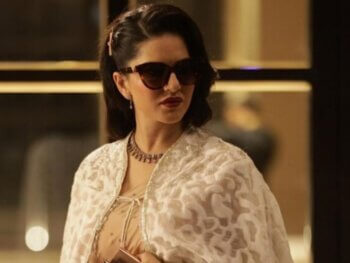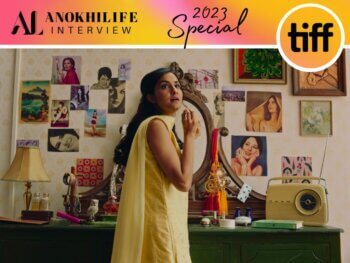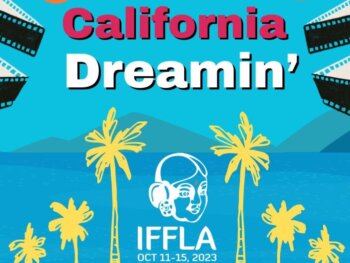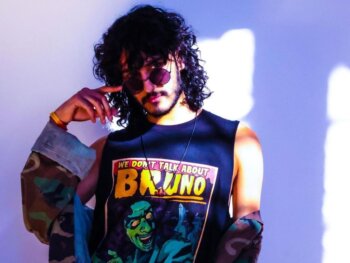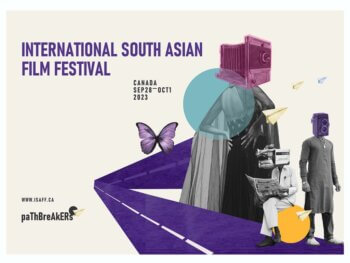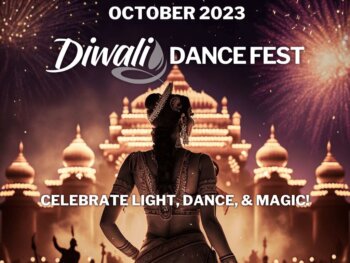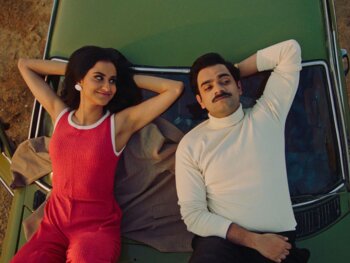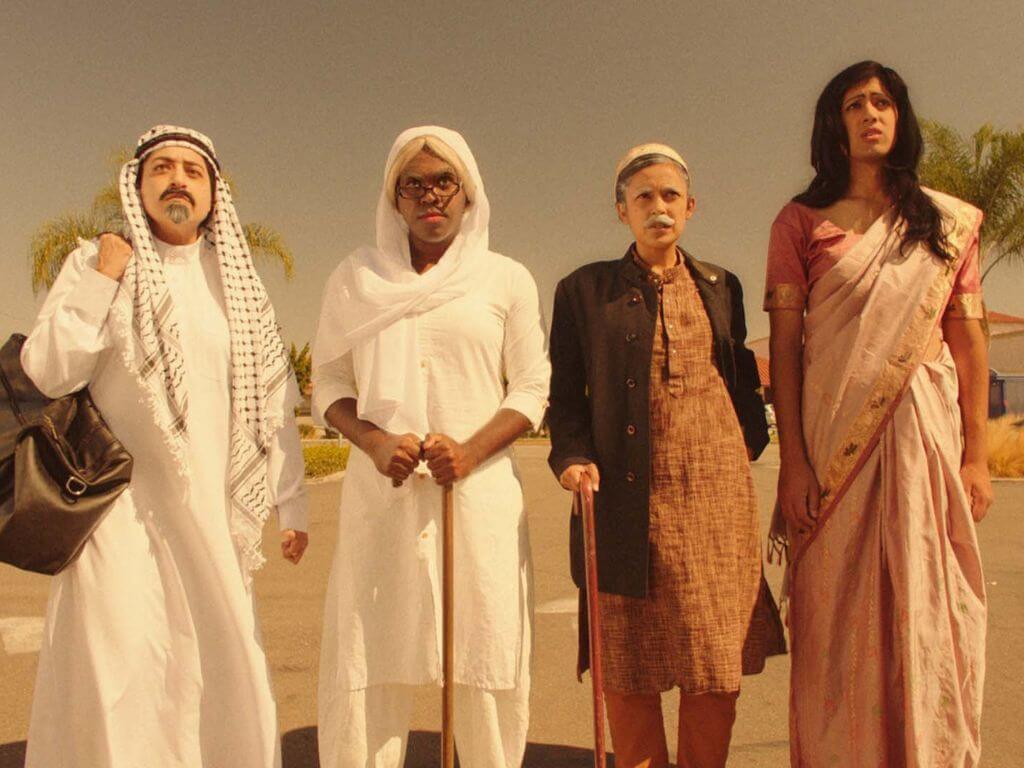
“Four Samosas” Director Ravi Kapoor And Star Venk Potula Dish On This Heist Comedy
Entertainment Dec 05, 2022
Four Samosas, the latest from actor turned filmmaker Ravi Kapoor, follows an aspiring L.A. rapper who teams up with three other bumbling misfits to steal some diamonds and win back his ex-girlfriend. We chat with Kapoor and his leading man Venk Potula about the freedom (and the fear) that comes with crafting a surreal film world that’s not constrained by the rules of everyday life, the joy of highlighting the unique vibe in Los Angeles’ “Little India,” and the growth of representation in mainstream entertainment.
A deliciously offbeat crime comedy set in Los Angeles’ “Little India” introduces us to Vinny (Wild ’N Out alum Venk Potula), a floundering wannabe rapper who suddenly finds the motivation to take charge of his life — for better or worse — when he learns that his ex-girlfriend Rina (The Magicians’ Summer Bishil) is getting married to a detestably smug goat-shit recycler (Karan Soni, of Deadpool fame). Hatching a plot to steal the dowry diamonds from her father’s grocery store and thereby scuttle the engagement, our hero recruits a team of fellow oddballs (Sonal Shah, Sharmita Bhattacharya and Nirvan Patnaik) who are, shall we say, less than Ocean’s 11 calibre. Not a great plan for Vinny, but a good bit of fun for audiences.
The project was executive-produced by Ghosts actor Utkarsh Ambudkar, but sprang from the mind of from writer-director Ravi Kapoor, best known for his work as an actor, having spent six seasons as a regular on NBC crime drama Crossing Jordan. Just ahead of the film’s debut this past Friday (in a limited theatrical run and on VOD), Kapoor and Potula gave Anokhi Life a little taste of what to expect from Four Samosas.
Matthew Currie: Shot in the dark here: one movie that kept popping into my head while watching Four Samosas is Wes Anderson’s Bottle Rocket — just in terms of a crime comedy that exists in its own, very particular reality . . .
Ravi Kapoor: I do like Bottle Rocket, and I like Wes Anderson as well — particularly his later stuff, which I think from a production standpoint is just incredible. Bottle Rocket is a great film. Maybe it was there in the back of my mind? But you’re definitely right in terms of the film living in its own kind of world where it’s not quite real life — it’s almost like living in a parallel universe, on a different planet.
MC: When you’re making a film that does exist in such a particular, heightened reality, is it a little bit terrifying? Are you worried that what’s in your head won’t translate onscreen?
RK: [Laughs] Yeah, that’s what I thought was happening all the way through the production and the editing. “This is terrible! Nobody’s going to get this. It’s nuts!” I think there is a risk in that, but then also there’s a very freeing element to it as well. It allows you to not be stuck by the rules of everyday life, and it allows you to invent a whole new space and a way of being.
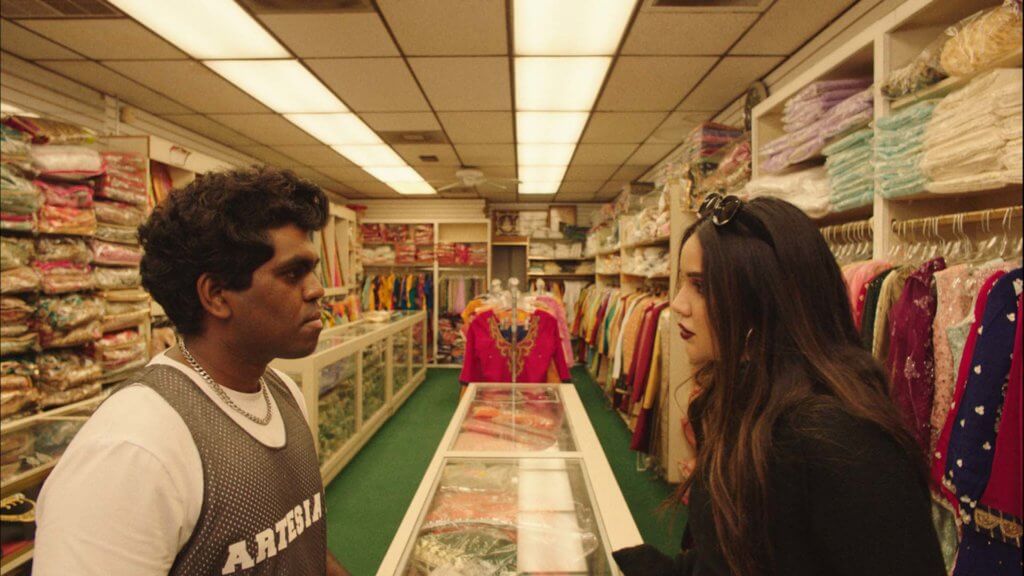
MC: Venk, as an actor, were you able to dial into that surreal world, that sense of humour right away?
Venk Potula: Yeah, absolutely. The first time I read it, I was just laughing. I love the wacky sense of humour. I love heist films. And I love things that aren’t afraid to really go for it. With Vinny . . . we also as an audience have to believe that this is happening for a reason, and that there is some emotion that’s grounding in that process. I really resonated with the idea of taking on both of those as a challenge to find that balance, while also knowing that we’re in a comedy and it’s not a realistic world. And that’s so fun. When do you get that chance as an actor to go in and really do something different? There’s a sort of naturalistic acting style that we’ve become very used to, and Ravi was very helpful in breaking that within me and being like, “You know what? This is the one where it’s not like that at all.”
MC: I’ve heard that, for an actor making the jump to director, directing on a TV show you’re a regular on is pretty much the best way to get started, given that you’re so familiar with the crew and the show, and you’re just very supported at every level. You had that chance, Ravi.
RK: I directed for a show that I was on called Crossing Jordan in the final season, and it is a really good way to introduce you to directing, because like you say, a lot of stuff is already set up for you. The cast is set, the tone of the TV show is set, you’re basically working a little bit on blocking, in terms of where do the actors move, where are you going to put the camera, how are you going to tell the story in a visual sense — but everything else is pretty much mapped out. And then it becomes about people management.
What I did realize directing for that television show back then, after doing that, as much as I loved it, I really wanted to go out and find what my own voice was. What kind of stories did I really want to tell? It’s similar to Venk’s character Vinny; he’s trying to rediscover what is his special quality? What’s his voice in all of this? That’s kind of what I went through. I directed my first feature, Miss India America, six or seven years ago, and I spent a while trying to get another project off the ground. And in that process of trying to get bigger projects off the ground, again I kind of felt that artistic impulse in me was being degraded to some degree. And doing Four Samosas was very much an attempt for me to rediscover that thing, which was really neat again.
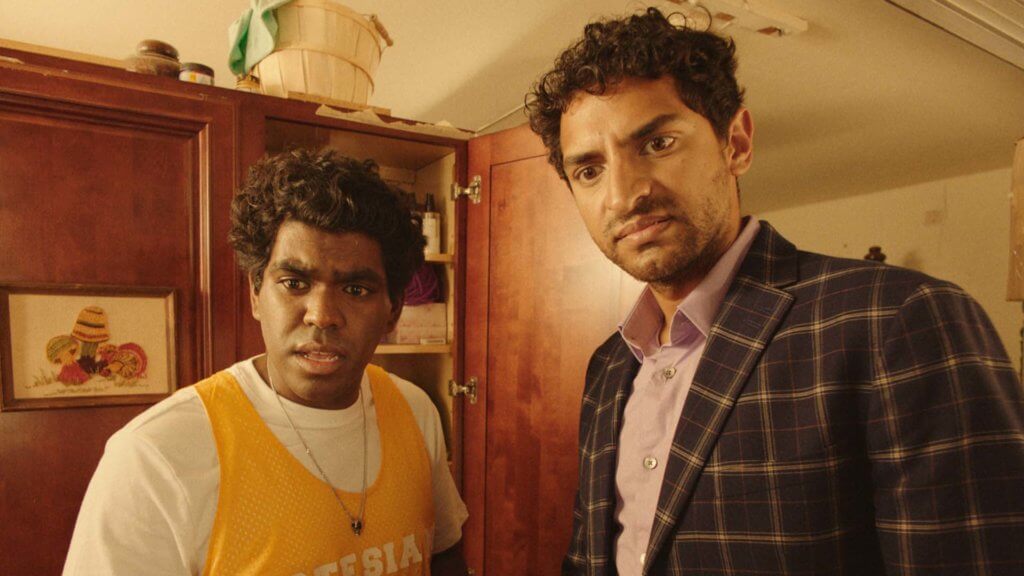
MC: Beyond making a quirky, fun heist flick, was there an appeal in shining a spotlight on L.A.’s Little India?
RK: Yeah, I’d always wanted to do something in Artesia, which is Los Angeles’ “Little India.” And I’ve always just been fascinated by Little Indias anywhere in the world. Every time I’m in a different city, I like to try and get to Jackson Heights, Queens, or Southall in London — these are interesting little principalities, I think. They’re places you can go and kind of have a touchstone to what you left behind or your parents left behind. It’s a way of getting on a plane without getting on a plane. Sometimes they can seem very insular and sometimes that also can seem incredibly welcoming; they become melting pots as well. I think Artesia, L.A.’s Little India, is so . . . it’s go its own vibe. And I was very interested in grabbing ahold of that vibe and elevating it a little bit.
MC: What role would you say music plays in this movie?
RK: Obviously, Vinny is a wannabe rapper, or he’s a rapper that’s lost his way. I always said, though, that this is not a rap movie. It’s not like we’re doing 8 Mile or something [laughs]. That’s just an element that’s a little in the background, and it’s part of his storytelling [journey] in being stuck. But the final song in the movie, Venk actually does a little bit of rapping, and we both wrote the lyrics for that.
The music was an important element and it helped kind of push the movie over the edge in some ways on an artistic level, make it a little more accessible, I think, for an audience.
VP: Taking on the persona of a guy who is trying to find his voice and figure out how he fits in all of this, and feeling like I can be a part of that creative process . . . like Ravi said with co-creating the lyrics to the end song and then singing as well, it was really satisfying. And it was like, “Maybe I should pick up the pen and try this out” [laughs]. I’ve always loved music and performing.
RK: Venk also gets to dance in the film. So he does it all. He nails everything. He’s like the Fred Astaire of the South Asian-American zeitgeist.
VP: [Laughs] That’s something to live up to.
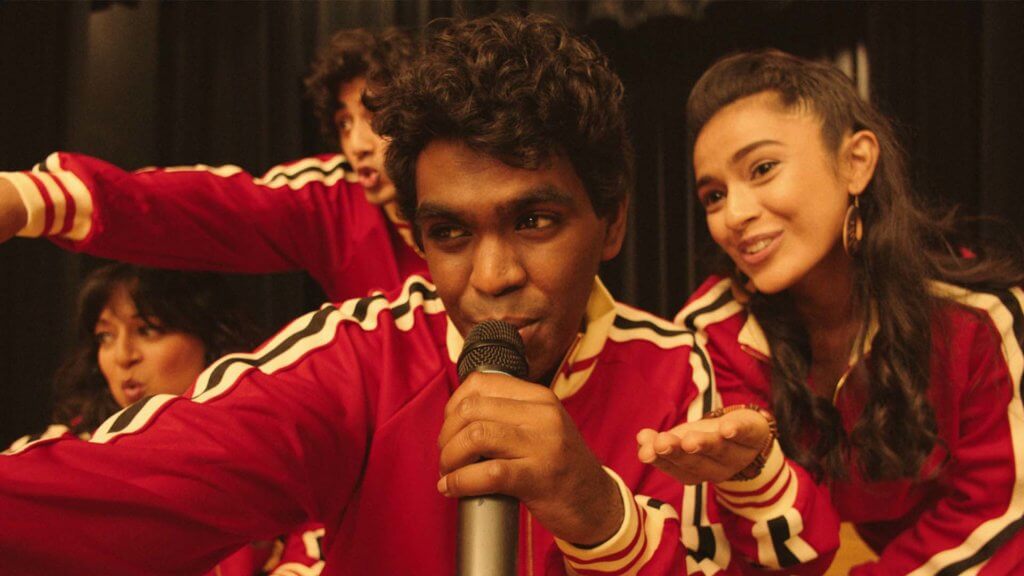
MC: Representation in entertainment has become a much larger part of the cultural conversation in recent years. When you’re making a film like this, is representation in your head, or do you just say, “I’m going to make a movie that I find intriguing, and then people can debate what it means for representation later”?
RK: For me, definitely the latter. I want to tell the story. I think the landscape has changed though, once you’ve made the film and you’re looking to get it out there. With my first feature, Miss India America, it came out in a very different time. Now people are more open to stories from different cultures. I think in some ways the industry has recognized there’s some money to be made from different stories and diversity. I also don’t feel that people should watch things just because it’s diverse, or that should be a pressure point. “You have to support us because we’re brown!” Ultimately, I think the work has to stand for itself. If you like the work and it tickles your fancy, then you go watch it. But I am happy that I feel there is more of an openness now.
VP: I definitely agree with Ravi. I’ll add something too, which is maybe a little bit more of the former for me. When I think about diversity, it’s not just about being South Asian. I always say, “I was a South Asian kid that didn’t grow up around any South Asian people.” [Laughs] If I can help to make sure and enforce that roles are being thought of from an authentic place for people who are not straight white males, then I’m going to do that. I want to be in a position where I can have that voice and people will listen to me . . . Yes, at the end of the day, story is king, [but] in some ways, I feel with the diversity conversation, it is about pushing it forward. And so I do try to bring that in with me in the stories I continue to create and tell. Luckily, because we are people of colour — I can speak for myself — I naturally tend to write with that perspective in mind already.
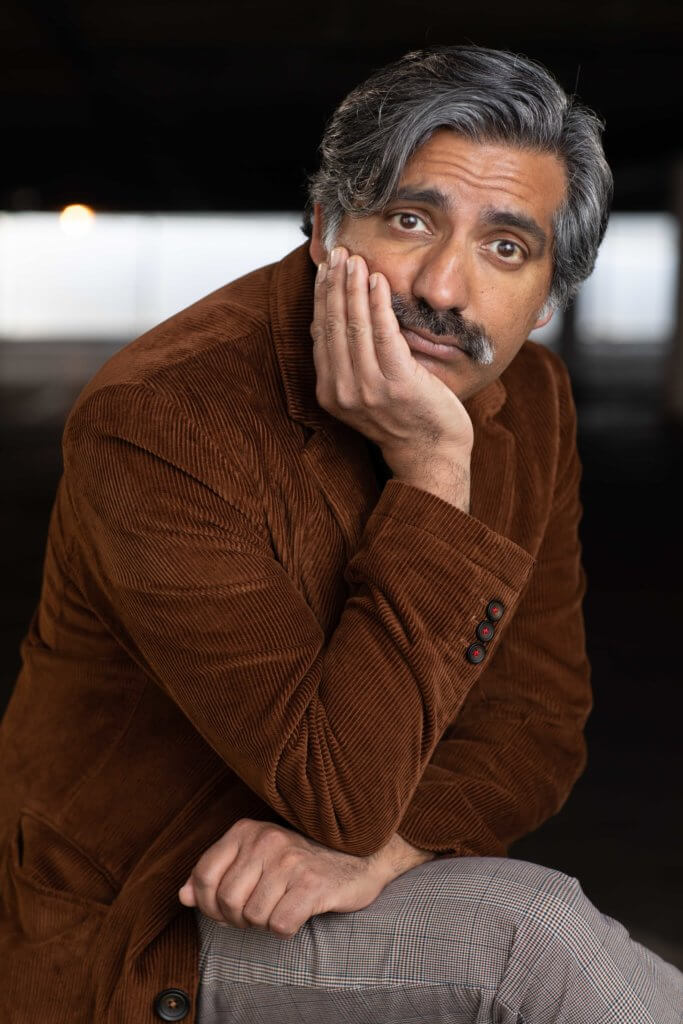
Main Image Photo Credit: IFC Films
Matthew Currie
Author
A long-standing entertainment journalist, Currie is a graduate of the Professional Writing program at Toronto’s York University. He has spent the past number of years working as a freelancer for ANOKHI and for diverse publications such as Sharp, TV Week, CAA’s Westworld and BC Business. Currie ...



































































































